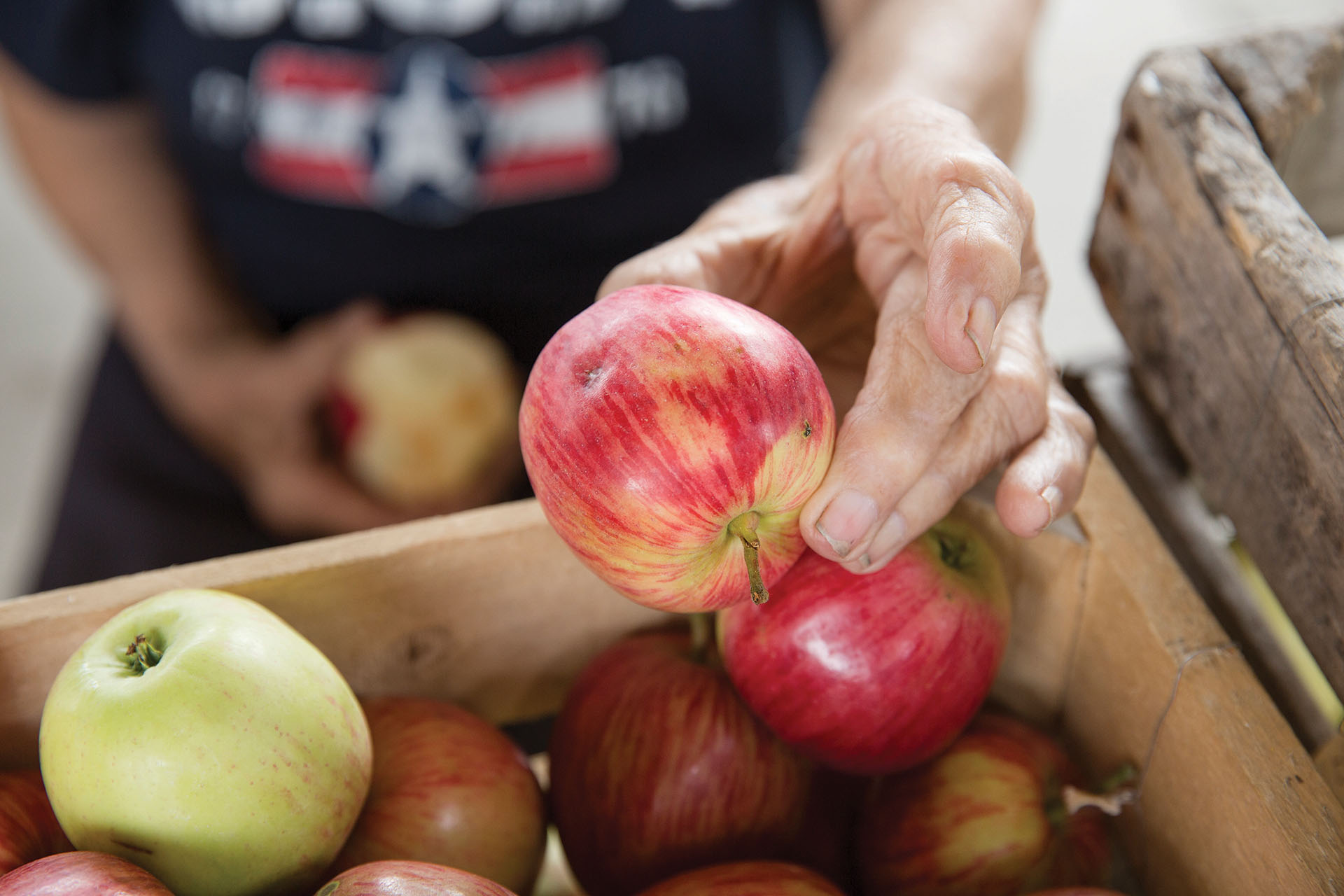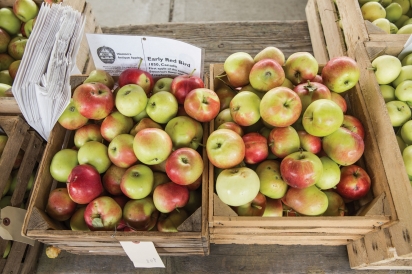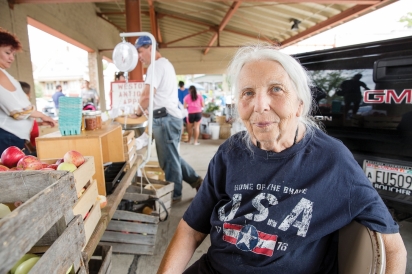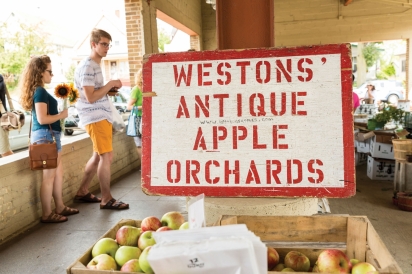Preserving Heritage by the Bushel
Walking through the rows of produce at the West Allis Farmers Market this Thursday afternoon, it’s hard to miss the Weston Antique Apples stand, womanned by the charming 87-year-old Genevieve Weston.
“We got a stall here in the market in 1948 when I graduated high school,” Genevieve laughs, “and I guess I’ve been here ever since.”
The Weston family’s orchard, located in New Berlin, has been selling their apples throughout the Milwaukee area for over sixty years now. Started in 1935 by Genevieve’s late parents Alice and Harvey, today the fourth-generation orchard spans 11 acres and houses 167 apple varieties.
“I was in second grade when my parents started the orchard. We dug the holes by hand, set out the trees and sold the apples for the first time commercially when I graduated from high school in 1948,” Genevieve says. “[Today] I still have customers from when I was in high school that will come and buy apples.”
Their customers will be the first to tell you that the Weston’s fruit aren’t your typical red and round stereotypical apples. With 167 varieties to choose from, the Weston’s orchard takes pride in selling plenty of apples that don’t quite fit the norm — namely antiques. Antique apple varieties all generally predate the 1940s (or when refrigerated shipping became mainstream).
Usually “apple” conjures up an image of a sweet, red and round fruit, but that wasn’t always the case or the popular image of apples. Before modern shipping really took hold in the 1940s, there were around 14,000 apple varieties grown in North America, ranging in size, texture, and, yes, taste. However, when refrigerated boxcars came around and enabled apples to be shipped greater distances, diversity in apple variety shifted. Hardy apple varieties that could last longer and grow in different soils quickly became prominent—your McIntosh, Red Delicious, Honeycrisp—and the more fragile and unique varieties became more rare.
“We have apples from England, apples from Germany, apples from Japan and Afghanistan, Russia... If you go to the grocery store and you taste an apple, they all taste alike,” Genevieve says. “Our apples all have different flavors. We have [Autumn] Strawberry apples, Cox’s Orange Pippins, an apple that tastes like a Hawaiian fruit, the Cornish Gilliflower...”
And with flavors ranging from nutty and rich, to bitter and tangy, many of these varieties are not always the easiest to grow and maintain, especially with Wisconsin weather and soil. Genevieve explains how that’s half of the fun—it’s also what makes their orchard stand out among others. “Whatever is ordinary, you get plenty of,” Genevieve chuckles, “but whatever is great and wonderful always seems to come in small quantity.”
The Weston family’s approach and appreciation for diverse fruit is what makes their business unique. And, in turn, Genevieve hopes that is what keeps them around for years to come.
“When we were little kids this was our mother and father’s dream,” Genevieve says. “We got to love it because of them, and our kids got to love it because of us. It’s a generational thing. We do this not for the love of money, but because it’s something we love.”








